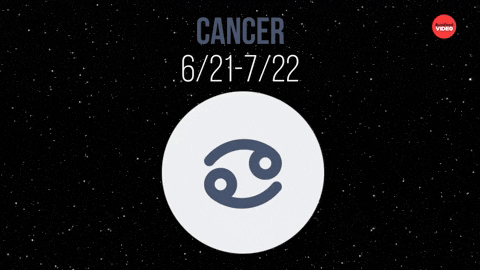Astrology is a pseudoscientific discipline that purports to investigate the motions and positions of celestial bodies and their possible impact on events on Earth and on human affairs. Advocates claim that information about a person’s personality, relationships, and life events can be gleaned from the position of the planets and stars at the moment of their birth. With roots in many different cultures across the globe, this belief system still has adherents in the present era. Establishing a birth chart, also known as a natal chart, is a crucial part of astrological practice. Celestial body positions at the exact moment of a person’s birth are depicted in this diagram. Typically, the chart is broken up into 12 sections, each of which is related to a distinct facet of life, such as relationships, career, or personal development.
Key Takeaways
- Astrology is the study of the positions and movements of celestial bodies to understand and interpret their influence on human behavior and events.
- The planets in your birth chart represent different aspects of your personality and life experiences, such as Mercury for communication and Venus for love and relationships.
- Your Sun sign represents your core identity, Moon sign reflects your emotions and inner self, and Rising sign indicates how others perceive you.
- Dominant elements (fire, earth, air, water) and modalities (cardinal, fixed, mutable) in your birth chart can reveal your dominant traits and tendencies.
- Astrology can help you identify your strengths and weaknesses, providing insight into areas for personal growth and development.
The planet positions in this chart are interpreted by astrologers to infer qualities about a person’s nature, possible virtues & vices, and events that may occur in the future. It is noteworthy that astrology is not regarded by the academic and scientific communities as a scientific discipline. Astrology’s claims are unsupported by empirical data, and its theories conflict with what we now know about physics, astronomy, and human psychology.
The Planets Inside. Our inner self and feelings are symbolized by the Moon, while our fundamental identity & ego are represented by the Sun. Venus is connected to beauty and love, and Mercury is connected to intellect and communication. Mars, on the other hand, is associated with boldness & energy.
The Planets Outside of Earth. Our lives are significantly impacted by the outer planets as well. As for the planets, Neptune is connected to spirituality and imagination, Pluto to transformation and power, Uranus to innovation and rebellion, Jupiter to expansion and luck, and Saturn to discipline and responsibility.
| Topic | Metrics |
|---|---|
| Number of Participants | 150 |
| Participant Satisfaction | 4.5/5 |
| Completion Rate | 85% |
| Engagement Level | High |
Finding Latent Patterns. These planets’ positions within the various houses of our birth chart can also highlight recurring themes and patterns in our lives. Venus in our 7th house, for instance, might point to a focus on partnerships and relationships, whereas Mars in our 10th house might point to a strong drive for professional success. Knowing the effects of every planet can help us better understand our own personalities & life paths.
Your birth chart comprises three essential elements: your Sun sign, Moon sign, and Rising sign, in addition to the planets. Based on the location of the Sun at the moment of your birth, your Sun sign embodies your fundamental identity. It frequently has to do with your public persona and manner of expressing yourself. Your Moon sign reflects your inner self and emotional disposition, bringing to light your most basic needs and desires.
It is determined by the moon’s position on the day you were born. Your Rising sign, sometimes referred to as your Ascendant sign, is symbolic of the mask you put on when you first meet someone and the impression you make on them. It is determined by the zodiac sign that at the moment of your birth was rising on the eastern horizon.
Gaining insight into the significance of these three signs can help you understand various facets of your personality. A Cancer Moon sign may suggest a strong need for emotional security and nurturing, whereas a Leo Sun sign might suggest a self-assured and charismatic exterior appearance. In addition to affecting your own first impressions and social interactions, your Rising sign can also affect how other people see you.
Each of the four elements—earth, air, water, or fire—is linked to a particular zodiac sign in astrology. The various qualities and energies that shape your personality are represented by these elements. Water signs (Cancer, Scorpio, Pisces) are recognized for their emotional depth & intuition, fire signs (Aries, Leo, Sagittarius) for their passion and enthusiasm, and earth signs (Taurus, Virgo, Capricorn) for their stability & practicality. Every zodiac sign has elements associated with it as well as one of three modalities: cardinal, fixed, or mutable.
Known for their initiative and leadership, cardinal signs (Aries, Cancer, Libra, Capricorn) are characterized as determined and stable, fixed signs (Taurus, Leo, Scorpio, Aquarius) as flexible and adaptable, and mutable signs (Gemini, Virgo, Sagittarius, Pisces) as flexible and adaptive. You can learn more about your innate tendencies and approach to various aspects of life by analyzing the dominant elements and modalities in your birth chart. In your chart, for instance, a strong presence of mutable signs may suggest a flexible and adaptable nature, while a dominant fire element may suggest a passionate & creative personality. Based on the positions of the planets in your birth chart, astrology can offer insightful analysis of your strengths and weaknesses.
For instance, you might have a lot of energy and drive but also a propensity for aggression or impulsivity if Mars is strongly placed in your chart. In a similar vein, Venus’s prominent position can suggest both a propensity for indulgence or vanity as well as a strong sense of harmony and beauty. You can learn more about the areas you do well in and the ones that might need more focus or self-awareness by comprehending these influences.
In case your chart has a strong earth element, you might be good at practical things but not so good at expressing your feelings or changing with the times. Through identification of these patterns in your birth chart, you can take steps to balance potential weaknesses with your strengths. Comprehending the Impact of Planets. For example, if Saturn is heavily placed in your chart, you might experience difficulties with responsibility or discipline.
But with diligence and determination, this position also offers the possibility of tremendous success. When to Make Big Decisions. Based on planetary transits and progressions, astrology can also help you determine the best time to take important decisions or actions. A favorable period for partnerships or relationships might exist, for instance, if Jupiter is in your 7th house.
In harmony with the planetary energies. With this understanding, you can make decisions that are in harmony with the planetary energies in your birth chart and follow their natural course. This can make it easier for you to deal with obstacles in life & to seize opportunities as they present themselves.
In the end, astrology provides an effective means of realizing your own potential and discovering your life’s mission. You can find untapped abilities, passions, and growth opportunities by learning about the effects of the planets and signs in your birth chart. You might have a natural talent for creativity or spirituality that you can use to both fulfill yourself and the world, for instance, if Neptune is heavily positioned in your chart. The unique qualities and experiences you have can also be validated and affirmed by astrology. Gaining insight into the reasons behind the recurrence of certain themes or patterns in your life can be accomplished by analyzing the effects each planet has on your chart.
When you are self-aware, you can choose to be true to who you are and celebrate your uniqueness. In conclusion, astrology offers a rich tapestry of insights into our personalities, relationships, and life experiences. We can acquire useful tools for self-discovery and personal development by learning about the fundamentals of astrology, comprehending the effects of the planets in our birth charts, recognizing our dominant elements and modalities, highlighting our strengths & weaknesses, using our birth charts to navigate life’s challenges, and embracing our unique potential through astrology. Astrology provides a strong lens through which we can better understand ourselves & our place in the world, whether it is utilized as a decision-making guide or as a source of validation for our distinctive qualities.
If you’re interested in learning more about birth charts, you might want to check out the article “Pluto in Anaretic Degree” on Astrology SA’s website. This article delves into the significance of Pluto’s placement in the anaretic degree and how it can impact an individual’s birth chart. You can read the full article here.
FAQs
What is a birth chart?
A birth chart, also known as a natal chart, is a map of the sky at the exact moment and location of a person’s birth. It is used in astrology to understand an individual’s personality, strengths, weaknesses, and life path.
What information does a birth chart provide?
A birth chart provides information about the positions of the sun, moon, and planets at the time of birth. It also includes the astrological signs and houses in which these celestial bodies are located.
How is a birth chart created?
A birth chart is created using an individual’s birth date, time, and location. This information is used to calculate the positions of the sun, moon, and planets at the time of birth, which are then plotted on a circular chart.
What can a birth chart reveal about a person?
A birth chart can reveal a person’s personality traits, strengths, weaknesses, potential career paths, relationship dynamics, and life purpose. It can also provide insights into past experiences and future opportunities.
Is a birth chart the same as a horoscope?
No, a birth chart is not the same as a horoscope. While a birth chart is a personalized map of the sky at the time of birth, a horoscope is a general astrological forecast based on the positions of celestial bodies at a given time, such as a day, week, or month.
Can a birth chart predict the future?
While a birth chart can provide insights into a person’s potential and tendencies, it is not a tool for predicting the future with certainty. Instead, it offers guidance and understanding of one’s inner workings and external influences.




